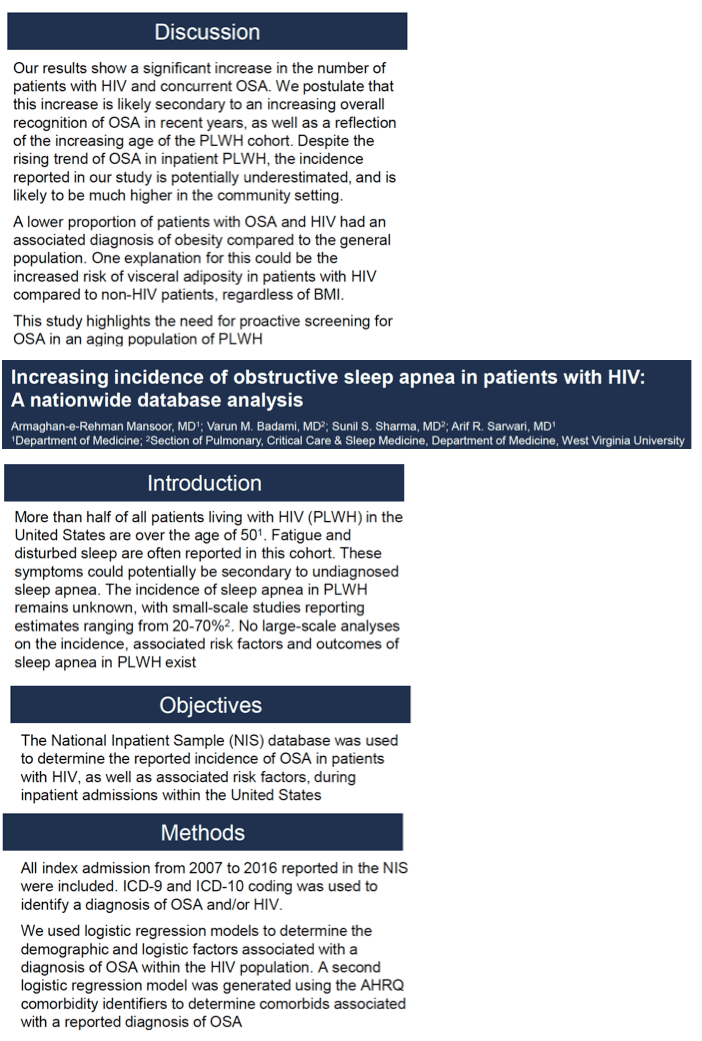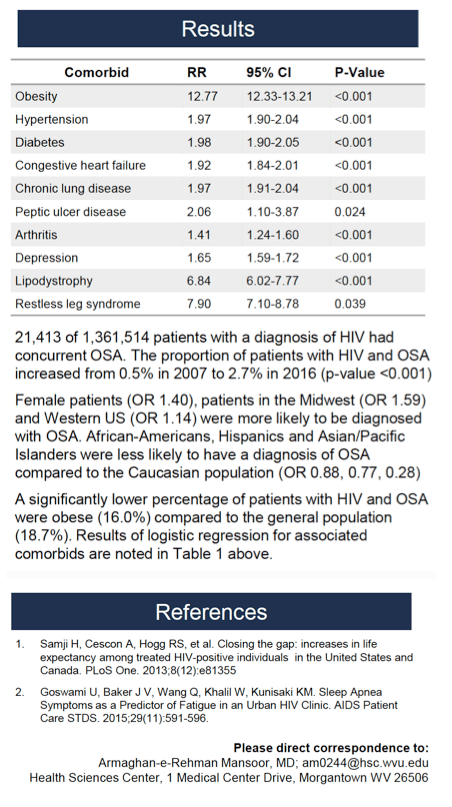 |
 |
 |
| |
Increasing incidence of obstructive sleep apnea in patients with HIV: A nationwide database analysis
|
| |
| |
Lipodystrophy associated with increased risk for obstructive sleep apnea
IDWeek 2020 Oct 21-25 virtual
Reported by Jules Levin
Obstructive sleep apnea occurs when the muscles that support the soft tissues in your throat, such as your tongue and soft palate, temporarily relax. When these muscles relax, your airway is narrowed or closed, and breathing is momentarily cut off. Obstructive sleep apnea is a potentially serious sleep disorder.Jun 5, 2019 In adults, the most common cause of obstructive sleep apnea is excess weight and obesity, which is associated with soft tissue of the mouth and throat. During sleep, when throat and tongue muscles are more relaxed, this soft tissue can cause the airway to become blocked. Obstructive sleep apnea is considered a serious medical condition. Complications may include: Daytime fatigue and sleepiness. The repeated awakenings associated with obstructive sleep apnea make normal, restorative sleep impossible. Various studies have shown individuals under fifty years of age with OSA to have a life expectancy that is reduced by 8 to 18 years. Diagnosis of OSA usually starts with an evaluation from the primary care physician.Jan 8, 2013. Medical conditions. Congestive heart failure, high blood pressure, type 2 diabetes and Parkinson's disease are some of the conditions that may increase the risk of obstructive sleep apnea. Polycystic ovary syndrome, hormonal disorders, prior stroke and chronic lung diseases such as asthma also can increase risk. Having sleep apnea increases your risk of developing insulin resistance and type 2 diabetes. Obstructive sleep apnea might also increase your risk of recurrent heart attack, stroke and abnormal heartbeats, such as atrial fibrillation. If you have heart disease, multiple episodes of low blood oxygen (hypoxia or hypoxemia) can lead to sudden death from an irregular heartbeat. sudden drops in blood oxygen levels that occur during sleep apnea increase blood pressure and strain the cardiovascular system. Having obstructive sleep apnea increases your risk of high blood pressure (hypertension).
https://www.mayoclinic.org/diseases-conditions/sleep-apnea/symptoms-causes/syc-20377631
sleep apnea lifestyle remedies
1. Maintain a healthy weight. Doctors commonly recommend people with sleep apnea to lose weight. ...
2. Try yoga. Regular exercise can increase your energy level, strengthen your heart, and improve sleep apnea. ...
3. Alter your sleep position. ...
4. Use a humidifier. ...
5. Avoid alcohol and smoking. ...
6. Use oral appliances


|
| |
|
 |
 |
|
|